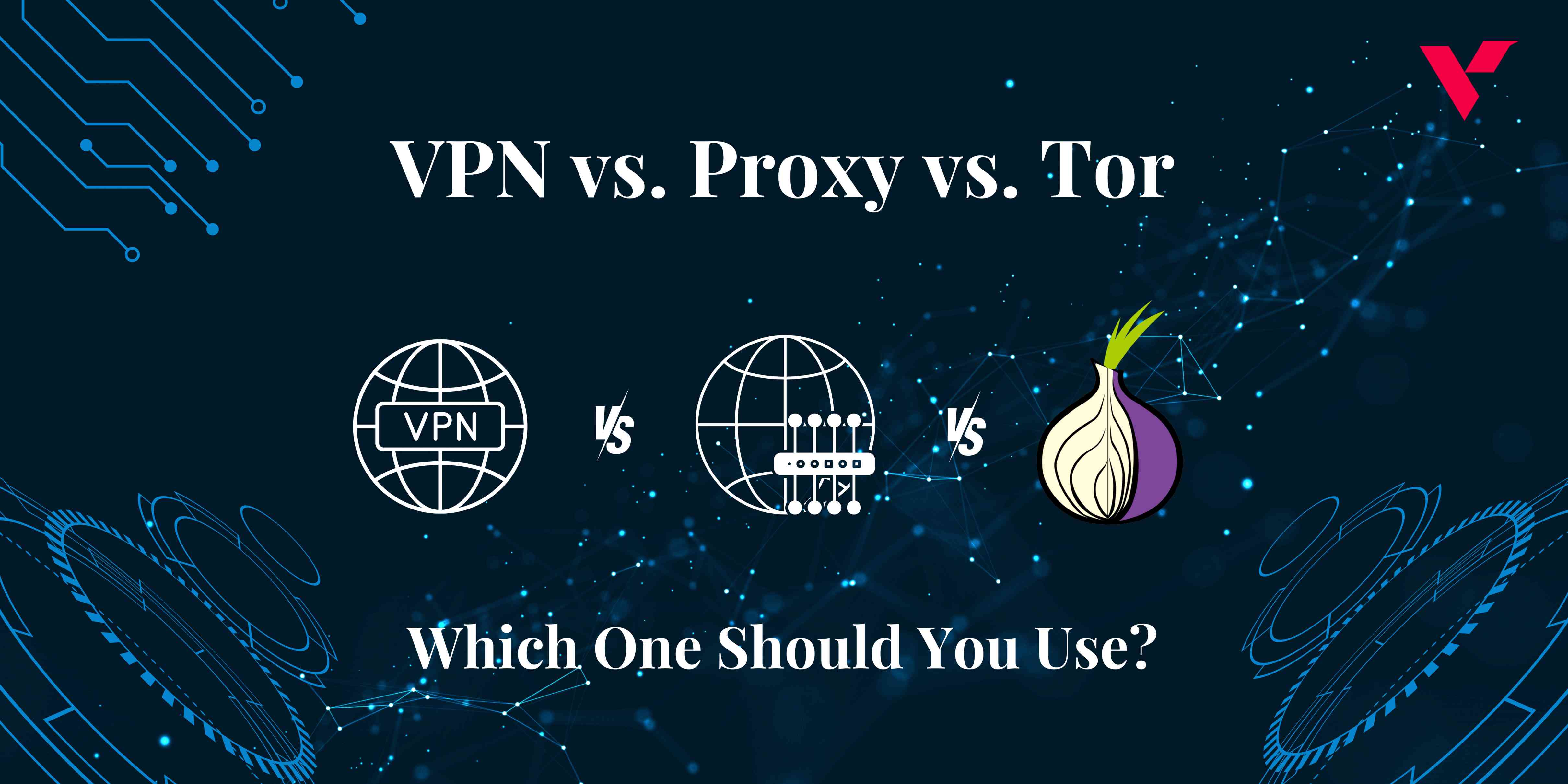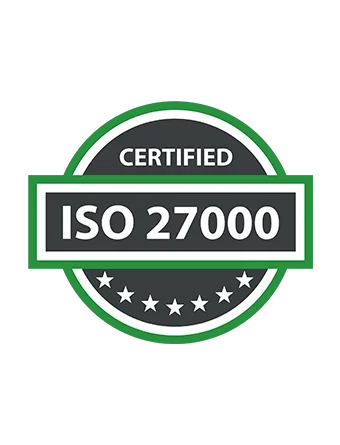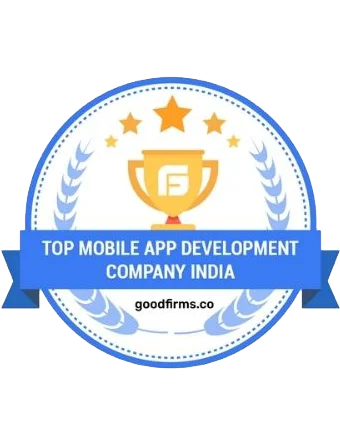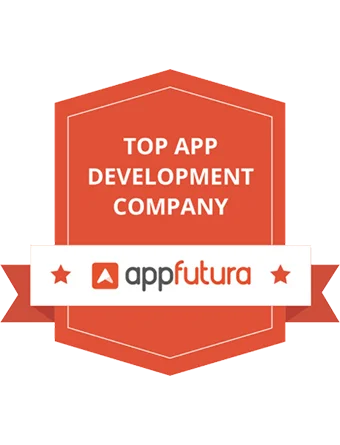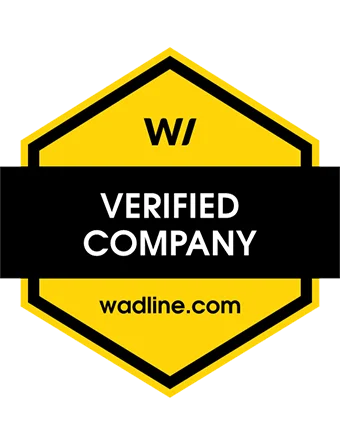Popular Tools by VOCSO
Welcome to the world of Wix SEO, where the rules are constantly evolving, and staying ahead of the competition requires a well-crafted strategy. With search engine optimization (SEO) becoming more complex with every passing year, it’s essential to keep up with the latest trends and techniques to stay relevant in the online landscape. In this blog, we’ll take a deep dive into the best practices for Wix SEO in 2023, from initial setup to continual optimization and monitoring. Whether you’re a small business owner, blogger, artist, or freelancer, these tips and tricks will help you optimize your Wix website for search engines, increase your online visibility, and connect with your target audience. So, let’s roll up our sleeves and get ready to unlock the secrets of Wix SEO in 2023!
Table of Contents
What is Wix?
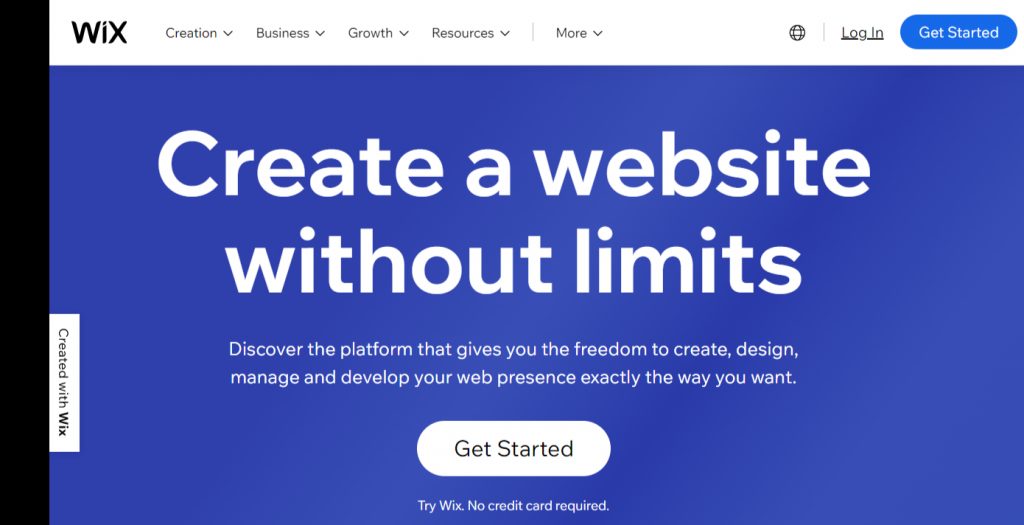
Wix is a cloud-based website development platform that allows individuals and businesses to create a website without coding or web design experience. The platform provides an intuitive drag-and-drop interface and hundreds of customizable templates, making it easy for users to create a professional-looking website with minimal effort. Wix also offers a range of features such as e-commerce, SEO, social media integration, analytics, and more, making it a comprehensive website-building solution. The platform is accessible to all, from small business owners and entrepreneurs to artists and designers, bloggers, and more. With Wix, anyone can create a website to showcase their brand, products, or services and connect with their audience.
Who is Wix Right For?
Wix is one of the most versatile website builders that can be an excellent choice for a wide range of individuals and businesses, including:
Small businesses: Wix provides affordable and accessible web design and hosting solutions, making it an ideal choice for small businesses looking to establish a web presence.
Entrepreneurs and freelancers: Wix’s ease of use and variety of templates make it a popular option for entrepreneurs and freelancers looking to create a website quickly and efficiently.
Artists and designers: Wix offers numerous design options and customization features, making it an ideal choice for artists, designers, and other creative professionals looking to showcase their work online.
Nonprofits and charitable organizations: Wix’s nonprofit program offers discounts and special features to help nonprofit organizations create and manage their websites.
Bloggers: Wix’s blogging capabilities, including an integrated blog editor and mobile optimization, make it an attractive option for bloggers looking to create a professional and visually appealing blog.
Overall, Wix is an excellent choice for those who want a user-friendly, affordable, and customizable website builder to create a professional-looking website quickly and easily. You can easily create a microsite or a professional website for your personal or business uses.
Explanation of Wix SEO
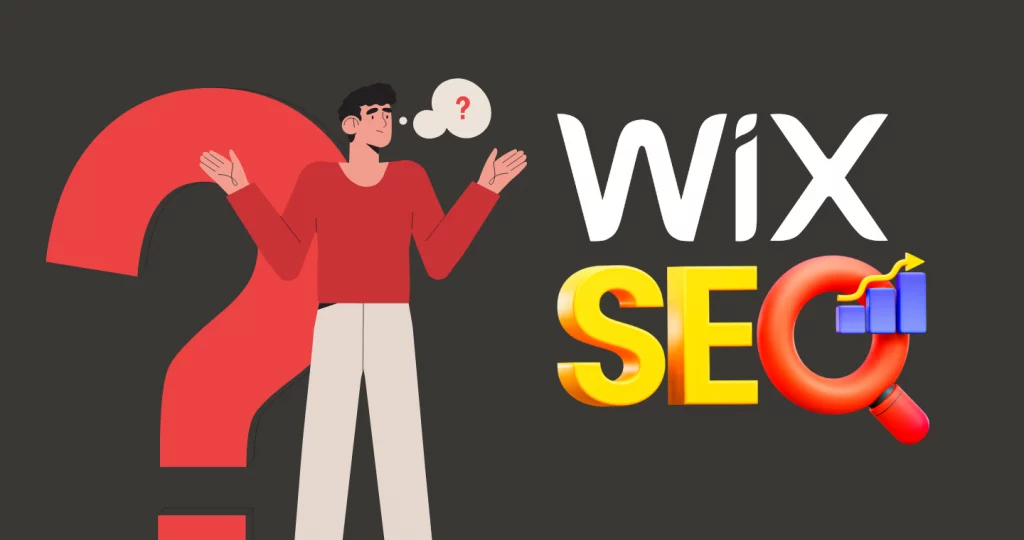
In today’s digital age, having a website is crucial for businesses and individuals to establish an online presence. However, a website is only useful if it can be easily found by potential customers through search engines. This is where search engine optimization (SEO) comes in. Wix, a popular website builder, provides a range of SEO tools that can help improve a website’s ranking on search engine results pages. In this article, we will delve into the intricacies of Wix SEO, explore the various features it offers, and provide tips on how to optimize your website for search engines using Wix. Whether you’re a Wix user or thinking of creating a website with the platform, this article will provide you with valuable insights to help your website rank higher on search engines.
Wix SEO refers to the process of optimizing a website built on the Wix platform for search engines like Google, Bing, and Yahoo. Wix is a popular website builder that provides users with a range of SEO tools and features to optimize their SEO workflow.
What SEO Features Does Wix Include?
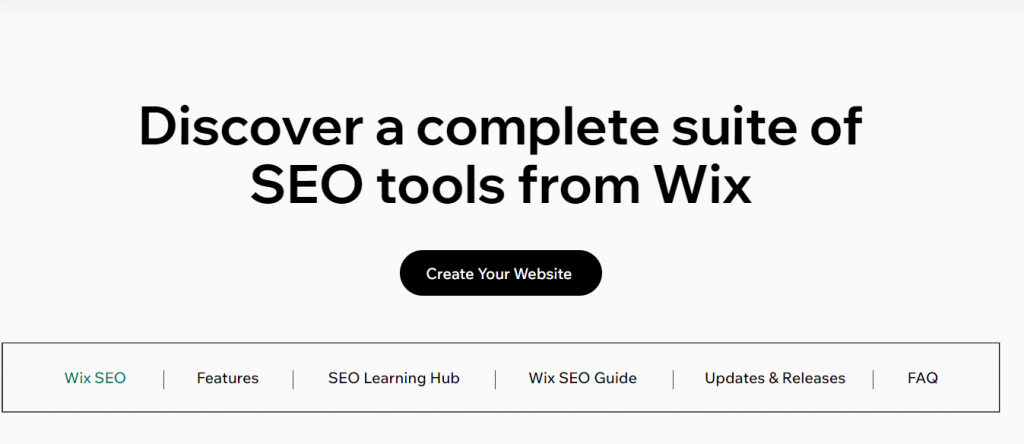
Wix offers several features to help with search engine optimization (SEO), which is the process of optimizing a website to rank higher in search engine results pages. Here are some of the SEO features that Wix offers:
1. Robots.txt editor:
This feature allows you to control how search engine crawlers access and index your website. You can use it to block search engines from indexing certain pages or directories, which can help improve your website’s overall SEO.
2. Server Side Rendering (SSR):
Wix offers SSR, which is a technique used to render web pages on the server side before sending them to the client’s browser. This can help improve the performance and speed of your website, which is a crucial factor for SEO.
3. URL customization:
Wix allows you to customize the URLs of your pages, which can help improve your website’s SEO. Customized URLs are easier to read and understand, and they can contain relevant keywords that help search engines understand the content of your pages.
4. Robots meta tags:
This feature allows you to add metadata to your web pages that tell search engines how to index and display your content. You can use it to control how search engines crawl and index your website, which can help improve your website’s SEO.
5. XML sitemaps:
A sitemap is a file that lists all of the pages on your website. Wix automatically generates an XML sitemap for your website, which can help search engines crawl and index your pages more efficiently. This can help improve your website’s SEO.
6. Content Delivery Networks (CDN) and caching:
Wix uses a CDN to deliver your website’s content to visitors. This can help improve the speed and performance of your website, which is a key factor for SEO. Wix also uses caching to store frequently accessed data, which can further improve your website’s speed and performance.
7. Image optimization:
Images can have a significant impact on your website’s SEO, as they can affect your website’s speed and performance. Wix offers image optimization tools that can help you compress and resize your images, which can help improve your website’s speed and performance.
The Pros and Cons of Wix for SEO
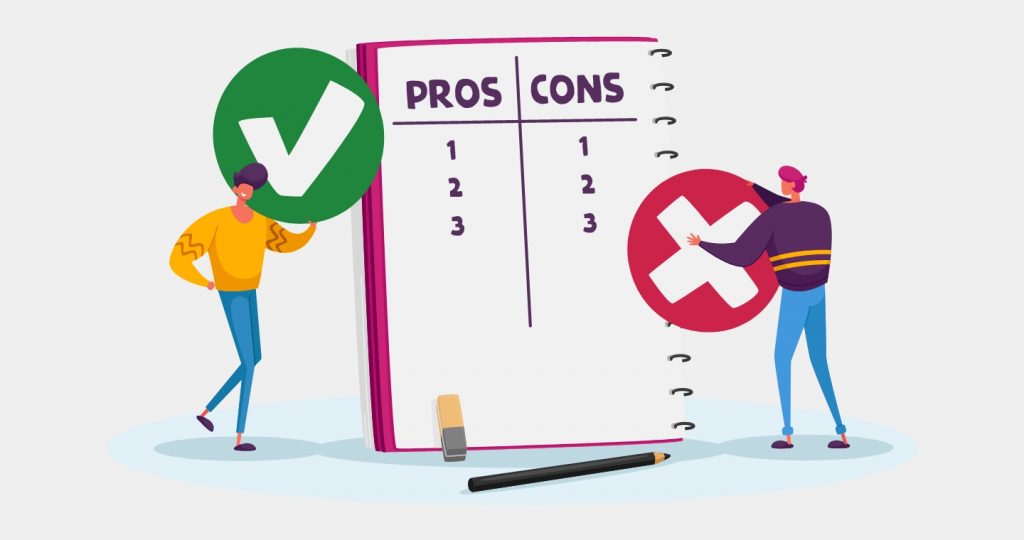
Wix is a popular website builder that offers a range of features for SEO. Here are some of the pros and cons of using Wix for SEO:
Pros:
User-Friendly: Wix is a user-friendly platform that allows users to easily build and manage their websites without needing advanced coding skills.
SEO Tools: Wix provides a range of built-in SEO tools that can help users optimize their website for search engines, including a built-in SEO wizard, customizable page titles and descriptions, and mobile optimization.
Design Templates: Wix offers a wide range of design templates that are responsive and optimized for mobile devices, which can improve the user experience and site performance, factors that search engines consider when ranking sites.
App Market: Wix’s App Market offers a range of SEO apps and plugins that can help users optimize their website, including tools for keyword research, link building, and analytics.
Cost-Effective: Wix offers a range of pricing plans, including a free plan, which makes it a cost-effective option for users with limited budgets.
Cons:
Limited Control: Wix’s user-friendly interface may limit some advanced features that can affect SEO, such as access to the website’s source code.
Limited Customization: While Wix offers a range of design templates, some users may feel limited in their ability to customize their website’s design to fit their brand.
Loading Speeds: Wix websites can be slower to load compared to other websites, which can negatively impact user experience and search engine rankings.
URLs: Wix URLs can be lengthy and may not be as customizable as some users may want.
Platform Updates: Wix frequently updates its platform and SEO tools, which may require users to adapt and learn new methods of optimization.
Wix offers a user-friendly website builder with built-in SEO tools and templates, which makes it an affordable and accessible option for users. However, some users may feel limited in their ability to customize and optimize their website’s design and features.
Importance of SEO for Wix Websites
SEO is important for Wix websites for several reasons:
1. Increased Visibility:
Wix websites that are optimized for search engines are more likely to appear at the top of search engine results pages. This increased visibility can lead to more traffic and, ultimately, more conversions and sales.
2. Brand Awareness:
By optimizing a Wix website for search engines, users can increase their brand’s visibility and reach a wider audience. This can help to increase brand awareness and recognition.
3. User Experience:
Wix websites that are optimized for search engines are also optimized for user experience. This means that the website will be more accessible and user-friendly, making it easier for users to navigate and find the information they need.
4. Long-Term Results:
SEO is a long-term investment that can yield lasting results. By consistently optimizing a Wix website for search engines, users can ensure that their website continues to perform well over time.
5. Competitive Advantage:
By optimizing a Wix website for search engines, users can gain a competitive advantage over other websites in their industry. This can help them to attract more customers and stand out in a crowded market.
6. Cost-Effective:
SEO is a cost-effective way to drive traffic and increase conversions. Unlike paid advertising, which requires ongoing investment, SEO can continue to drive traffic and increase conversions over time with minimal ongoing costs.
Wix SEO Best Practices for 2023
Here are the best practices for a Wix website SEO that you can follow. Apart from these best practices, I would recommend you keep up to date with SEO trends.
1. Initial Setup
Setting up a strong foundation for SEO is critical to ensure that a Wix website can perform well in search engine results. Here are two important initial setup practices for 2023:
A. Set Up The Wix SEO Wiz
Wix offers a built-in SEO tool called the Wix SEO Wiz, which provides step-by-step guidance for optimizing a website for search engines. The tool helps users identify relevant keywords, optimize page titles and descriptions, and improve website content. Using the Wix SEO Wiz can help ensure that the website is set up for SEO success from the outset.
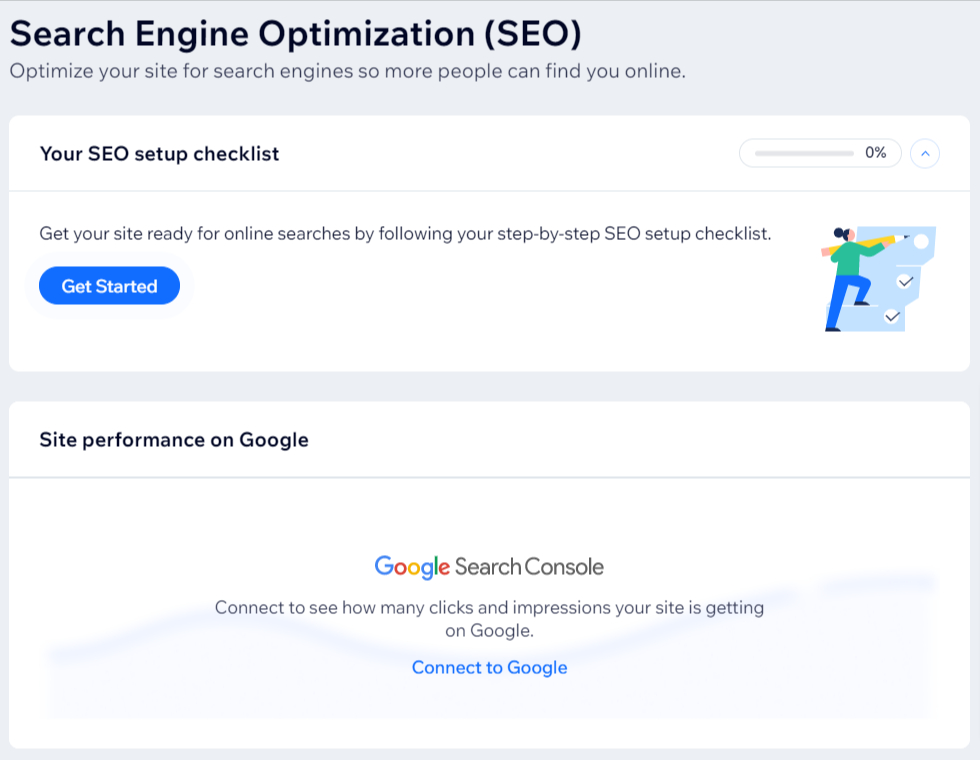
B. Set Up Google Search Console and Analytics
Google Search Console and Analytics are powerful tools that can provide valuable insights into website performance and help identify areas for improvement. Google Search Console can help users monitor their website’s search engine visibility and identify issues with crawling or indexing. Google Analytics provides data on website traffic, user behavior, and engagement. By setting up these tools, users can get a comprehensive view of their website’s performance and use this information to optimize their website for SEO.
2. Keyword Research and Analysis
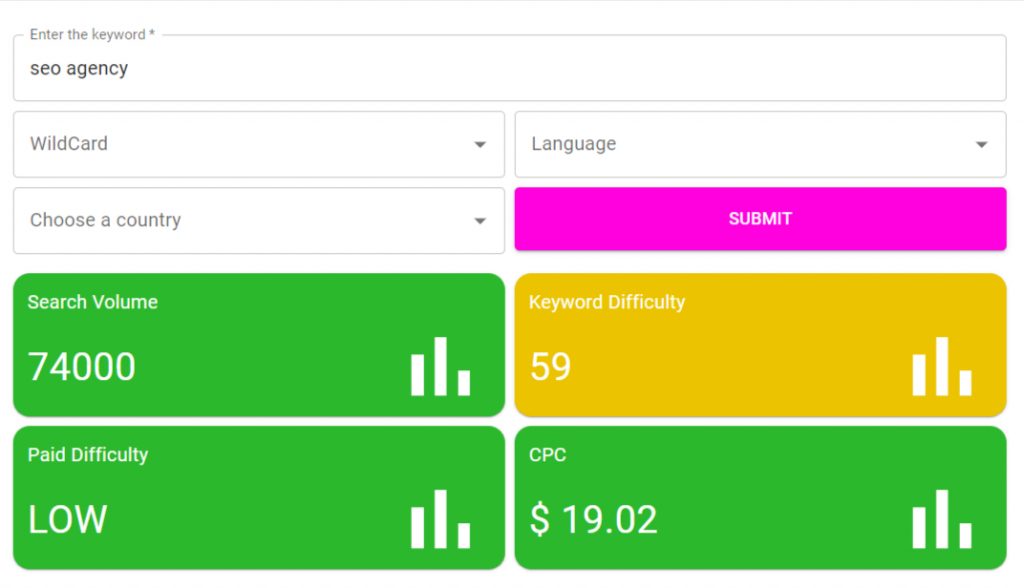
Keyword research and analysis is a crucial parts of any successful SEO strategy for a Wix website. Identify the keywords that people use to search for your products or services and incorporate them into your website’s content. There are several ways that you can use to do keyword research. And using keyword research tools is the best way to find relevant keywords for your products and services pages just in a few minutes. If you’re doing SEO for a new website then I would recommend finding long tail keywords and optimizing those for your website pages to see some quick results.
Here are some best practices for conducting keyword research in 2023:
A. Importance of Keyword Research
Keyword research is important because it helps users understand what keywords and phrases their target audience is searching for in search engines. By identifying relevant keywords, users can optimize their website’s content to ensure that it is aligned with their target audience’s search queries, which can help improve their website’s search engine ranking and visibility.
B. Identifying Relevant Keywords
To identify relevant keywords, users can start by brainstorming keywords and phrases that are relevant to their business or industry. They can then use keyword research tools to identify additional keywords and phrases that they may not have considered.
Users can also analyze their website’s content to identify relevant keywords that they are already targeting. They can use tools like Google Search Console to see what keywords are currently driving traffic to their website.
C. Competitor Analysis
Analyzing competitor websites can also provide valuable insights into what keywords and phrases are relevant to a particular industry or audience. Users can use competitor analysis tools to see what keywords their competitors are targeting and use this information to inform their own keyword strategy.
D. Tools for Keyword Research
There are many tools available to help users conduct keyword research, including Google Keyword Planner, SEMrush, Ahrefs, and Moz Keyword Explorer. These tools provide valuable data on keyword search volume, competition, and relevance, which can help users identify the best keywords to target for their website.
3. On-page Optimization
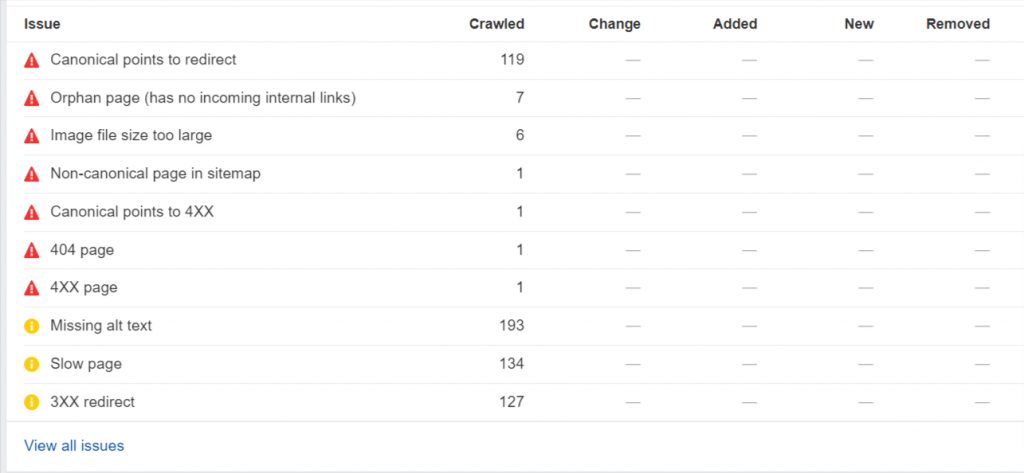
On-page optimization is the process of optimizing individual web pages in order to rank higher and earn more relevant traffic in search engines. On-page optimization is the key phase of SEO optimization for any website. No matter whether you’re using WordPress or Wix or any other platform. During your on-page optimization, you can optimize your website’s page titles, descriptions, headings, and content to make them more search engine-friendly. There are several on-page SEO tools that you can use to find on-page SEO factors and how your website is performing with these factors so you can fix them.
Here are some best practices for on-page optimization of Wix websites in 2023:
A. Importance of On-page Optimization
On-page optimization is critical because it helps search engines understand what a webpage is about and can improve its visibility in search engine results. By optimizing individual web pages, users can increase their website’s search engine ranking and attract more relevant traffic to their website.
B. Optimization of Titles and Meta Descriptions
Optimizing page titles and meta descriptions is a key component of on-page optimization. Page titles and meta descriptions should accurately describe the content of a webpage and include relevant keywords to improve its search engine ranking.
C. Content Optimization
Content optimization is also important for on-page optimization. Users should ensure that their website’s content is high-quality, relevant, and optimized with relevant keywords. Users should also aim to create fresh and original content on a regular basis to keep their website updated.
D. Image Optimization
Image optimization is essential for improving website speed and can also help with search engine optimization. Users should ensure that their website’s images are appropriately sized, compressed, and include relevant alt text.
E. Internal Linking
Internal linking is the practice of linking to other pages on the same website. This can help users navigate a website and also helps search engines understand the structure of a website. Users should aim to include internal links to other relevant pages within their website’s content.
F. URL Structure
URL structure is important for both search engines and users. URLs should be descriptive and include relevant keywords, making it easier for users to understand what a webpage is about.
G. Mobile Optimization
Mobile optimization is critical for websites in 2023. Users should ensure that their website is optimized for mobile devices to improve its visibility in search engine results and provide a good user experience for mobile users.
Ensure that your website is mobile-friendly and loads quickly on mobile devices, as Google now considers mobile-friendliness a key ranking factor. Here are a few key steps that you can use to optimize your website for mobile.
Use a responsive design: A responsive design automatically adjusts the layout of a website to fit the screen size of the device it’s being viewed on, which is crucial for providing a good user experience on mobile.
Compress images: Large images can slow down the loading speed of a website, which is especially problematic on mobile devices. Compressing images can reduce their file size and improve loading times.
Minimize content: Mobile screens are smaller than desktop screens, so it’s important to minimize the amount of content displayed on each page. This can involve using shorter headlines, reducing the length of paragraphs, and limiting the number of images displayed.
Use mobile-friendly fonts: Fonts that are too small or difficult to read on a mobile device can be a major frustration for users. Use fonts that are easy to read on small screens and maintain consistent font sizes throughout the website.
Optimize page speed: Mobile users expect fast-loading websites, so it’s important to optimize page speed by minimizing code and file sizes, leveraging browser caching, and using content delivery networks. As I know speed optimization is the biggest challenge these days that website owners are facing. I would recommend you should get speed optimization services to speed up your website.
Use mobile-friendly navigation: Navigation menus can be tricky on mobile devices, so it’s important to use a simplified menu that is easy to use and accessible from any page on the website.
Optimize forms: Forms that are too long or difficult to use on a mobile device can be a major barrier to conversion. Optimize forms by minimizing the number of fields and using large, easy-to-click buttons.
Test and optimize: Finally, it’s important to test the website on a variety of mobile devices and browsers to ensure that it looks and performs as intended. Regularly analyzing website analytics and user feedback can help identify areas for improvement and optimize the website for mobile over time.
H. Site Speed
Site speed is a crucial factor for on-page optimization. Users should ensure that their website’s pages load quickly to provide a good user experience and improve its search engine ranking.
I. Use Optimized H Tags
Optimizing H tags (i.e. H1, H2, H3, etc.) is important for on-page optimization. H tags should be used to organize and structure website content, making it easier for users and search engines to understand the content of a webpage.
4. Technical SEO

Technical SEO refers to the optimization of the technical aspects of a website in order to improve its search engine ranking. Make sure you’re optimizing your website for the top technical SEO factors to win your SEO game in 2023.
Here are some best practices for technical SEO for Wix websites in 2023:
A. Importance of Technical SEO
Technical SEO is important because it ensures that a website is crawlable and indexable by search engines. Technical SEO also helps improve website speed, user experience, and search engine ranking.
B. Website Structure and Navigation
Website structure and navigation are important for technical SEO. Users should ensure that their website has a clear and organized structure, with a hierarchy of pages that can be easily navigated by both users and search engines.
Organize your website’s pages into a clear hierarchy and ensure that each page is easy to navigate and linked to from other pages. Site structure plays an important role to enhance your website ranking and user experience. If your website structure is not good then you’re doing one of the biggest SEO mistakes.
C. Sitemap and Robots.txt
A sitemap is a file that lists all of the pages on a website, and a robots.txt file tells search engine crawlers which pages to crawl and which pages to avoid. Users should ensure that their website has a sitemap and a properly configured robots.txt file to improve crawlability and indexability.
D. HTTPS and SSL
HTTPS and SSL (Secure Sockets Layer) are important for website security and can also improve search engine ranking. Users should ensure that their website has an SSL certificate to ensure that all communications between the website and users are encrypted and secure.
E. 404 Errors
A 404 error occurs when a page on a website cannot be found. Users should monitor their website for 404 errors and ensure that they are properly redirected to relevant pages to prevent any negative impact on search engine ranking.
F. Structured Data
Structured data is additional information that can be added to a webpage’s HTML code to help search engines understand the content of the page. Users should ensure that their website includes relevant structured data to improve search engine ranking and visibility.
G. Mobile Friendliness
Mobile friendliness is important for technical SEO in 2023. Users should ensure that their website is optimized for mobile devices, with a responsive design and fast loading times to improve search engine ranking and user experience.
H. Canonical URLs
Canonical URLs are important for technical SEO because they help prevent duplicate content issues. Users should ensure that their website has canonical URLs to indicate the preferred version of a webpage to search engines.
I. Page Speed
Page speed is important for both technical and on-page SEO. Users should ensure that their website’s pages load quickly to improve user experience and search engine ranking.
Technical SEO is critical for the success of a Wix website in 2023. By optimizing website structure and navigation, sitemap and robots.txt, HTTPS, and SSL, monitoring and redirecting 404 errors, structured data, mobile friendliness, canonical URLs, and page speed, users can improve their website’s crawlability, indexability, user experience, and search engine ranking.
5. Off-page Optimization
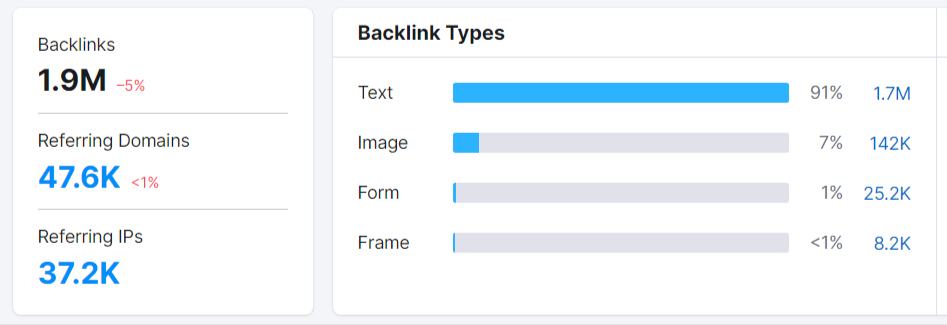
Off-page optimization refers to the activities that take place outside of a website to improve its search engine ranking. Here are some best practices for off-page optimization for Wix websites in 2023:
A. Importance of Off-page Optimization
Off-page optimization is important because it helps increase a website’s authority and reputation on the web, which can have a positive impact on search engine ranking. Off-page optimization activities can also help drive traffic to a website and improve its visibility.
B. Create Link Building Strategies
Link building is an important off-page optimization activity that involves acquiring backlinks to a website from other authoritative websites. Users should develop a link-building strategy that includes identifying potential link-building opportunities, reaching out to website owners to request backlinks, and creating high-quality content that is likely to attract backlinks.
C. Build Quality Backlinks To Your Site
Build high-quality backlinks to your website from other authoritative sites in your industry to improve your website’s authority and search engine rankings. Make sure you’re regularly checking your backlinks and removing those that are looking irrelevant and against the Google quality guidelines.
Link building is an ongoing process that SEOs or website owners use to generate backlinks to get higher rankings. If you’re managing a business website and want to create backlinks and you do not have good ideas about backlinks then you should go for white label link building services.
Content creation: Regularly create high-quality, informative, and engaging content on your website to attract more visitors and keep them engaged. Creating high-quality content is a time-consuming task but if you do it on regular basis then I am sure you will get good results.
D. Social Media Optimization
Social media optimization involves leveraging social media platforms to increase a website’s visibility and drive traffic. Users should create and maintain social media profiles that are optimized for their brand, and regularly share high-quality content that is likely to be shared and liked by their target audience.
E. Local SEO
Local SEO is important for businesses that have a physical location and serve a local market. Users should optimize their website for local search by including location-specific keywords and content and creating a Google My Business profile.
F. Create an official blog page and Publish Great Content
Creating an official blog page on a website and regularly publishing high-quality content is an important off-page optimization activity. Blogging can help improve search engine ranking, increase website traffic, and establish a website as an authority in its industry or niche.
6. Content Creation and Marketing
Content creation and content marketing is an essential aspects of SEO for Wix websites in 2023. Here are some best practices for content creation and marketing:
A. Importance of Content Creation and Marketing
High-quality content is essential for attracting and engaging website visitors, building brand awareness, and improving search engine ranking. Content marketing involves creating and distributing relevant, valuable, and consistent content that attracts and retains a clearly defined audience.
B. Types of Content
There are several types of content that users can create, such as blog posts, articles, videos, infographics, podcasts, webinars, and more. The type of content that is best for a Wix website depends on the target audience and the industry or niche.
C. Content Promotion Strategies
Once the content is created, it’s important to promote it effectively to reach the target audience. Users should leverage social media platforms, email marketing, influencer marketing, and other marketing channels to promote their content and drive traffic to their websites.
D. Content Outreach
Content outreach involves reaching out to relevant websites and influencers to promote the content and acquire backlinks. Users can use tools like BuzzSumo and SEMrush to identify potential outreach targets and track the success of their outreach campaigns.
By creating high-quality content, promoting it effectively, and conducting outreach campaigns, users can improve search engine ranking, drive traffic to their website, and build their brand’s reputation and authority in their industry or niche.
7. Analytics and Monitoring
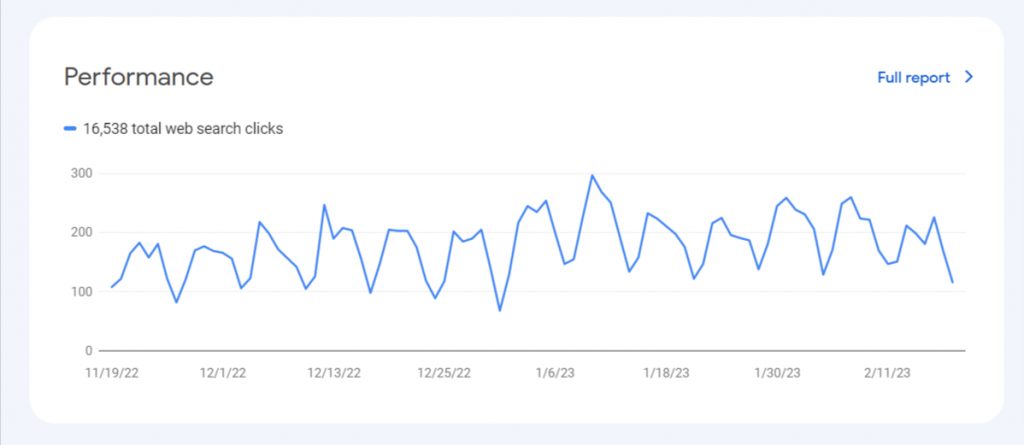
Analytics and monitoring are crucial for the success of a Wix website’s SEO strategy. Here are some best practices for analytics and monitoring:
A. Importance of Analytics and Monitoring
Analytics and monitoring help users understand how their website is performing, what is working and what needs improvement, and where they can focus their efforts to optimize their SEO strategy. Regular monitoring allows users to identify any issues that arise and take corrective action promptly.
B. Setting up Google Analytics
Google Analytics is a free tool that helps users track website traffic and monitor user behavior on their website. Users should set up Google Analytics on their Wix website and configure it to track key metrics and goals.
C. Key Metrics to Monitor
Some of the key metrics that users should monitor on their Wix website include traffic volume, traffic sources, bounce rate, time on site, page views, conversion rate, and more. By monitoring these metrics, users can gain insights into their website’s performance and identify opportunities to improve.
D. Website Audit Tools
Make sure you’re using website audit tools like SEMrush, Ahrefs, and Google’s PageSpeed Insights to audit your website’s performance and identify any technical issues that need to be addressed. These tools can also help users optimize their website’s structure, content, and other SEO elements. You can start your website SEO audit with these free tools to find how your site is performing for your users and search engines.
E. Regular Monitoring and Reporting
The website owner should monitor their website’s performance regularly and generate reports to track progress and identify areas for improvement. Regular monitoring and reporting enable users to stay on top of their website’s performance and make data-driven decisions to optimize their SEO strategy.
Conclusion
A. Recap of the Best Practices for 2023
Optimizing a Wix website’s SEO in 2023 requires a multifaceted approach that involves initial setup, keyword research and analysis, on-page optimization, technical SEO, off-page optimization, content creation and marketing, and analytics and monitoring. Users should set up the Wix SEO Wiz, Google Search Console, and Analytics to ensure their website searches are engine-friendly and track key metrics. Keyword research and analysis help users identify relevant keywords and optimize their website’s content. On-page optimization, technical SEO, off-page optimization, and content creation and marketing strategies can help boost website traffic, increase rankings, and improve conversion rates. Regular monitoring and optimization of a website’s SEO strategy are essential to ensure continued success. In conclusion, by following these best practices, Wix website owners can improve their website’s SEO performance in 2023 and beyond.
B. Importance of Continual Optimization and Monitoring
Continual optimization and monitoring are critical for the success of a Wix website’s SEO strategy. Search engine algorithms are constantly changing, and competitors are always seeking to improve their rankings, which means that Wix website owners must continually optimize and monitor their site’s SEO strategy. By regularly updating website content, analyzing website metrics, and implementing new SEO techniques, Wix website owners can keep up with changes in the industry and stay ahead of the competition.
Continual optimization and monitoring can also help identify and fix issues that may be hurting a website’s rankings, such as broken links, slow loading times, or poor-quality content. Overall, ongoing optimization and monitoring are essential for achieving and maintaining high rankings on search engine results pages and driving more traffic to a Wix website.
C. Final Thoughts and Recommendations.
Wix offers a user-friendly platform for building websites, but SEO remains a critical component to ensure the website is visible to potential users. By following the best practices for 2023, including initial setup, keyword research and analysis, on-page optimization, technical SEO, off-page optimization, content creation and marketing, and analytics and monitoring, Wix website owners can improve their website’s search engine rankings and drive more traffic to their site.
Continual optimization and monitoring are essential to maintaining and improving the website’s SEO performance over time. In addition to these best practices, Wix website owners can consider working with an SEO professional to ensure their website is optimized for their specific industry and audience. By prioritizing SEO and following the best practices for 2023, Wix website owners can position their website for long-term success and achieve their business goals.






